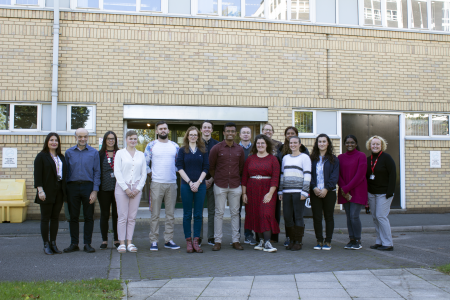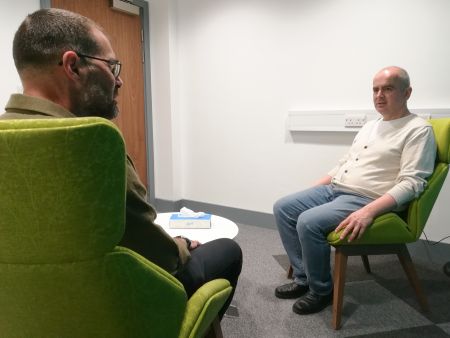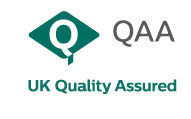New report says: “we need to recognise that the majority of child abuse and neglect occurs within homes, families and communities”

New report says: “we need to recognise that the majority of child abuse and neglect occurs within homes, families and communities”
Friday 17 October 2014
Today, Monday 20 October, sees the launch of a new report into how different countries tackle child abuse, in particular sexual exploitation, and how the UK can benefit from this learning.
‘Living on a railway line. Turning the tide of child abuse and exploitation in the UK and overseas: international lessons and evidence-based recommendations’ is a work by The Pennine Acute Hospitals NHS Trust’s Professor Andrew Rowland, in association with The Winston Churchill Memorial Trust and University of Salford.
There are 10 key recommendations for the UK together with 25 associated and enabling recommendations and seven international recommendations. All of the recommendations are designed to build strong and healthy communities with children at their hearts.
There are five major themes that run throughout the report:
- Mandatory reporting of child abuse occurring within organisations exercising care, supervision or authority over children
- Better training to recognise and respond to cases of potential child sexual exploitation
- The launch of a children’s advocacy centre pilot and advocating on behalf of children
- Prohibition of physical punishment of children
- The need for further research surrounding child protection in the UK, including ascertaining the views of society to help develop preventative strategies
The launch coincides with the 25th anniversary of the signing of the UN Convention on the Rights of the Child. According to Professor Rowland’s report, a quarter of a century later there are still laws, policies and procedures in the UK and internationally which fall way short of properly protecting children.
Professor Rowland gathered evidence from USA (Texas, Arizona, Pennsylvania, Colorado), Singapore, Malaysia (Kuala Lumpur, Ipoh) and Cambodia (Sihanoukville). He investigated the impact of mandatory reporting of child abuse, the work of children’s advocacy centres and learned about strategies used to identify children at risk of child sexual exploitation and trafficking. He uses his international experiences to make recommendations for the UK and the international community. The work contains over 300 scientific and other references.
Professor Rowland said: “It is of the utmost importance that we recognise that the majority of child abuse and neglect occurs within homes, families and communities. We must not be distracted by a media frenzy of high-profile cases related to public figures and celebrities - disturbing though they are, they do not reflect the majority of abuse cases that occur within our communities. However, it is time for the UK to take an unequivocal stand against child abuse cases occurring in association with positions of power or responsibility, and the law in the UK should be changed to introduce mandatory reporting of them. We need much better research to understand, in more detail, society’s views about child abuse. There needs to be a standardised educational programme delivered to all professionals working with children and families, not just a competency framework. Professionals working with children need to advocate much more on behalf of children and empower them to participate more fully in decisions relating to the communities in which they live. It takes a community to protect a child: protecting children really is everyone’s business, including yours.”
Lisa Harker, Director of Strategy Policy and Evidence at NSPCC, said: “This report provides a valuable consideration of a diverse range of challenges faced by professionals and members of the community when seeking to improve safeguarding of vulnerable children in the UK. By drawing on the insights gained from reviewing and observing practices in a wide range of international contexts this report offers a fresh perspective on these issues and the potential responses.”
Jamie Balfour CBE DL, Director General of The Winston Churchill Memorial Trust, said: ‘Dr Rowland’s excellent report demonstrates the significant results that can come from a Winston Churchill Memorial Trust Travelling Fellowship. These Fellowships provide a unique opportunity for British citizens to travel overseas to bring back fresh ideas and new solutions in order to address many of the current social challenges facing the UK’.
To download the report got to: http://www.wcmt.org.uk/users/andrewrowland2014
For further information contact: Andrew Lynn , The Pennine Acute Hospitals NHS Trust T. 0161 604 5459 andrew.lynn@pat.nhs.uk









